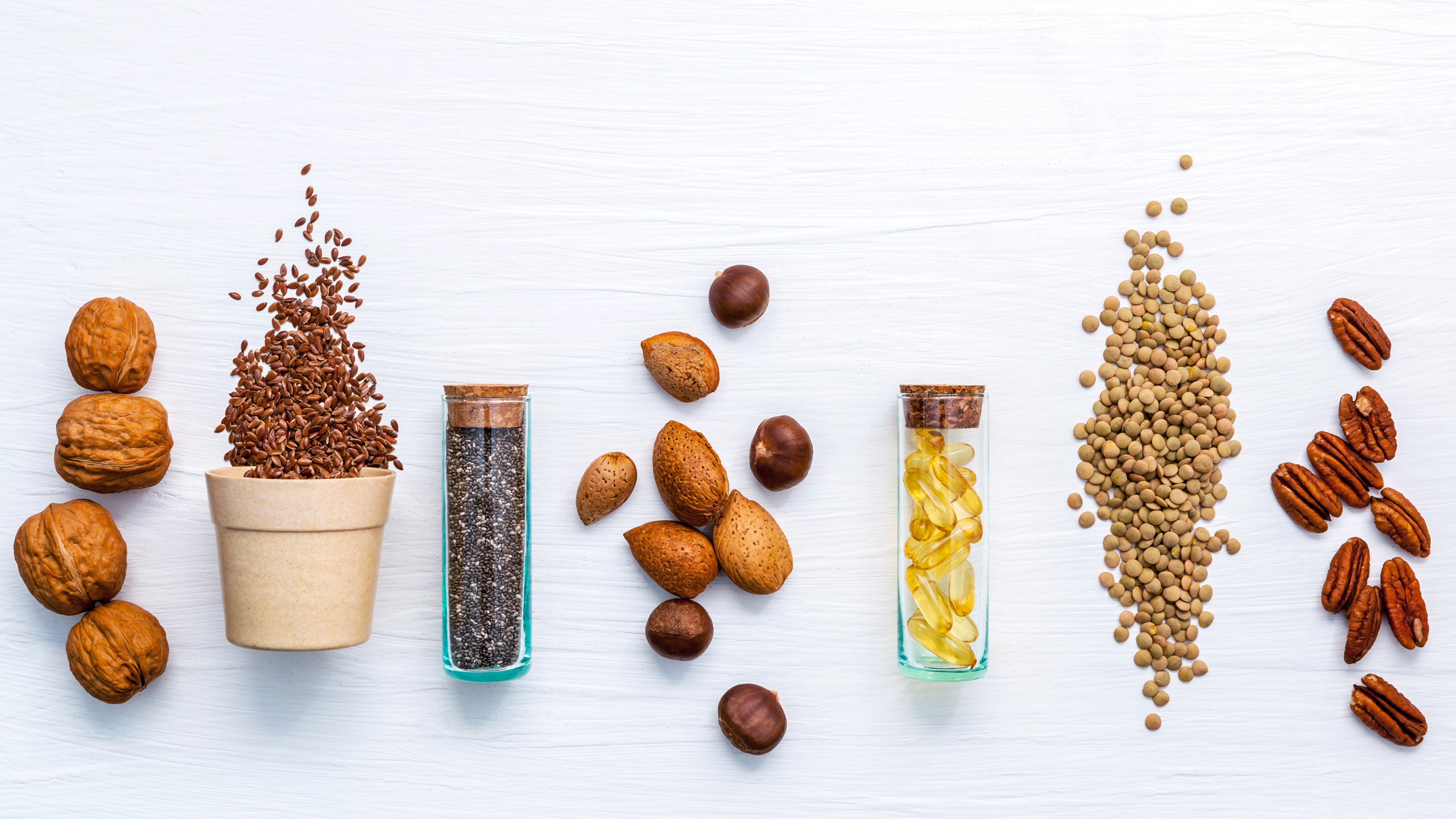The concept of biohacking has increasingly made its way into popular culture and media headlines over the last decade. From improving weight loss and brain health, to increasing endurance and longevity, there’s been an increase in self-experimenters trying all kinds of things to enhance performance and optimize their health, especially when it comes to cognitive function. But is there any research to back this up?
Science says yes…with a few caveats. While certain biohacks can be beneficial in improving memory and thinking skills, other ones can be detrimental to health. But which ones are worth your time, and what should you steer clear of? Before we dive into the best science-backed biohacks to improve brain health, let’s first take a look at what biohacking is and the different forms that exist.
What is biohacking?
By definition, biohacking is a form of biological experimentation done to improve the qualities or capabilities of individuals [40]. Many forms of biohacking are scientifically sound and relatively simple, like taking a fish oil supplement or eating more dark, leafy greens. Others, such as transfusing a younger person’s blood into your body (also known as a young blood transfusion) are much more involved and risky —not to mention lacking in scientific support.
A biohacker is someone who uses strategic interventions to DIY their own biology. While some take it to the extreme, most biohackers focus on small, incremental diet or lifestyle changes to improve their general health and wellbeing or to achieve a specific outcome —like setting a new PR or sharpening your memory.
Some other examples of biohacking include:
Following a set sleep regimen
Meditation
Journaling
Taking nutritional supplements
Following a specific diet
Taking cold showers to enhance fat burning
Using a smartwatch or other device to optimize performance or recovery
Tracking glucose levels with a continuous glucose monitor
Exercising regularly
Adding butter to your morning coffee
Analyzing your DNA and adopting diet or lifestyle changes based on your genetic markers
Embedding magnets, chips, or computers under their skin
Hanging out in a hyperbaric chamber
10 science-backed biohacks for boosting memory and cognitive performance
Research shows that aging can increase the incidence of stroke, memory loss, and dementia, which is why many are turning to biohacking to improve their memory, sharpen their thinking skills, and hopefully offset age-related changes to the brain and declines in cognition [42].
Here are 10 of the best science-backed biohacks to help you improve your mental sharpness and help you maintain a healthy brain as you age.

Fill up on omega 3’s.
Omega-3 fatty acids, including docosahexaenoic acid (DHA), eicosapentaenoic acid (EPA), and alpha-linolenic acid (ALA), play an essential role in building brain and nerve cells and maintaining brain health as you age. They’ve been shown to improve memory in healthy adults and beneficial shown to delay cognitive decline [1].
Studies have found that 1 g/day or more of DHA (either alone or combined with EPA) contributes to improved memory function in older adults with mild, age-related memory complaints [1]. Moreover, people over age 55 with age-related memory complaints saw a positive difference on a memory and learning test with 900 mg/day of DHA [2].
DHA's memory and cognitive performance benefits might not just be for older folks, either. For example, research shows that healthy adults with low dietary intake of DHA that took 1.16 g/day of supplemental DHA showed significant improvements in memory and their memory-related reaction time compared to those given a placebo [3].
The Dietary Reference Intakes developed by the National Academy of Medicine recommends the following [41]:
Men: 1,600 mg/day of ALA omega-3
Women: 1,100 mg/day of ALA omega-3
Heart disease: 1 g/day of EPA plus DHA, preferably from fatty fish
You can obtain omega-3’s through the following dietary sources:
DHA and EPA: Fatty fish (such as salmon, trout, tuna, and sardines) and fish oil
ALA: Walnuts, chia seeds, flaxseeds, soybeans, canola and soybean oil
Your body can’t produce all omega-3 fatty acids on its own, so you must rely on dietary sources and/or supplements to meet your needs. If you’re vegetarian or vegan or don’t regularly eat fish or seafood, these foods become increasingly important. Here’s more on how you can get enough omega-3s on a plant-based diet.

Start taking turmeric.
Turmeric is a potent source of curcumin, a compound with powerful anti-inflammatory and antioxidant properties associated with boosting brain health and protecting against Alzheimer’s disease [4,5,6]. Extensive research also shows curcumin promotes healthy brain growth and the formation of new neurons in the brain, also known as neurogenesis, which may play a significant role in long-term memory and learning [39,7].
Curcumin’s neurogenesis effects may be related to its ability to boost brain-derived neurotrophic factor (BDNF), a protein that helps the brain develop new connections, repair failing brain cells, protect healthy brain cells, and plays an important role in memory and learning [8]. Low levels of BDNF are associated with depression and other neurodegenerative disorders like Alzheimer's disease [9, 10].
While there is no standard dose for turmeric, the World Health Organization has established 1.4 mg of curcumin/pound of body weight (0–3 mg/kg) as an acceptable daily intake. However, studies show that 180 mg/day of curcumin could provide cognitive benefits, and that curcumin supplementation of 200 to 1,820 mg/day for 8 to 12 weeks can significantly increase serum BDNF levels in adult men and women [11,12].
Learn more about the benefits of turmeric with this ultimate guide.
Adopt the MIND Diet.
The MIND diet, short for Mediterranean-DASH Intervention for Neurodegenerative Delay, is a brain-boosting diet that mixes parts of the Mediterranean and DASH (Dietary Approaches to Stop Hypertension) diets. Research has linked the MIND diet to better cognitive performance, less cognitive decline, and a lower dementia risk, as it can slow brain aging by 7.5 years [13,14].
The MIND diet emphasizes 10 “brain-healthy food groups,” including [15]:
Green, leafy vegetables (1+ serving/day)
Other vegetables (2+ servings/day)
Berries (2+ servings/week)
Nuts (5+ servings/week)
Whole grains (3+ servings/day)
Beans (4+ servings/week)
Chicken and turkey (2+ servings/week)
Olive oil (daily)
Fish (especially omega-3-rich fatty fish like salmon, trout, and sardines; 1+ serving/week)
Red wine (1 glass/day —or skip it if you don’t currently drink wine)
It also recommends avoiding or significantly limiting certain foods, including red meat, butter and margarine, cheese, pastries and sweets, and fried or fast food [15]. Experts have found that those who follow this diet long-term are more likely to get the most benefits.

Exercise regularly.
Studies continue to show that physical activity, especially aerobic exercise, can produce positive structural changes in the brain, improvements in cognitive function, and be protective against age-related brain diseases and declines in brain function [16]. For instance, moderate intensity exercise is particularly helpful for improving working memory and cognitive flexibility, whereas high-intensity exercise enhances the speed at which you process information [16].
Exercise can also indirectly boost memory and cognitive performance by improving stress, anxiety, sleep and mood, which are known causes or contributors to cognitive impairment [16].
Here are some other proven brain-boosting benefits of exercise [16]:
Increased gray matter volume in frontal and hippocampal regions.
Increased levels of BDNF keeps existing brain tissue healthy, and plays an important role in memory and learning.
Increased blood flow.
Increased academic achievement (especially in children).
Improvements in cognitive performance including learning, memory, and attention.
Prevention of cognitive decline and reduced risk of developing dementia (especially in older adults).
To get the most brain-boosting benefits from exercise, aim to get at least 150 minutes of physical activity a week from a variety of low, moderate and high-intensity workouts. For the most significant and long-term benefits, consistency is key.
Try intermittent fasting.
People who practice intermittent fasting claim to experience more mental quickness, increased clarity, and less brain fog, but what does science have to say?
A growing body of evidence suggests that periods of fasting, even without changes in calorie or nutritional intake, can have beneficial effects on cognition, mood, and brain aging [17, 18]. These benefits are assumed to be attributed to “metabolic switching”, the shift from using carbohydrates (specifically, glucose) to ketones to fuel the body.
Scientists believe toggling back-and-forth between glucose and ketones for fuel may enhance the brain’s functionality and bolster its resistance to stress, injury and disease [18]. To date, the research in animals has been most convincing.
One study found that groups of mice which fasted between 12 and 16 hours per day had higher levels of BDNF compared to mice fed as much or as often as they desired [19, 20]. A separate study found young mice that fasted every other day for 11 months performed better on two tests designed to measure their memory, learning, and brain function than those fed a high-fat diet (40% calories from fat) [21]. Moreover, one study shows that lions who went from a regular, daily feeding routine to a more random “gorge and fast” regimen paced less and became more active and engaged in more instinctive behavior like sniffing and stalking [22].
Additionally, a small pilot study in humans (mostly women) found that a 1-week modified fast improved participants' daytime concentration, vigor, emotional balance, and sleep quality [23].
While most of the research on fasting and the brain stems from research done in animals, the preliminary findings warrant more high-quality human studies to validate the overwhelming anecdotal evidence that fasting improves cognition, alertness, and learning.

Sleep 7-8 hours each night.
Sleep plays a key role in learning, memory, and cognitive processing, and contributes to how we gain insight, make connections, and integrate large amounts of information [24]. However, not getting enough can have significant detrimental effects on attention, memory and executive function [24].
Studies have found that people who spent 3 to 7 hours in bed per night experienced decreased cognitive performance over a period of 14 days, with their cognitive performance being similar to that of subjects who are totally sleep deprived for 24 to 48 consecutive hours [25,26].
According to the Center for Disease Control and Prevention, adults between the ages of 18 to 60 need at least seven hours of sleep per night; yet, despite these recommendations, it’s estimated that one-third of Americans do not consistently get enough sleep [37,38]. So, if you struggle to fall (or stay) asleep, here are some science-backed ways to improve your sleep quality:
Setting (and sticking to) a regular sleep schedule
Avoiding bright screens before bed
Keeping your bedroom cool and dark
Steering clear of caffeine and excess alcohol later in the day.
Trying certain sleep supplements.
Practice mindful meditation.
Mindfulness advocates have long touted the profound impact meditation has on their lives, and now we have the research to back it up. Studies show that mindfulness not only improves cognition, but it also changes the physical structure of the brain and may even offset age-related cognitive decline [27,28,30].
One clinical trial found that individuals who participated in a meditation training session experienced significant improvements in visuo-spatial processing, attention, working memory, and executive functioning, as well as reduced fatigue and anxiety [27].
Mindfulness meditation has also been shown to induce positive structural changes to the hippocampus (the area of the brain that governs learning and memory), the amygdala (responsible for fear, anxiety, and stress), as well as certain areas of the brain involved in emotion regulation [28]. These changes can have positive effects on short-term and autobiographical memory, cognitive flexibility, and self-awareness [29].
Keep strong social connections.
Socializing is an important part of life, as it combats loneliness, builds connections, and improves your quality of life. However, studies have found that being social goes beyond your weekly brunch meeting–it can help sharpen memory and cognitive skills, increase sense of happiness, and stimulate attention and memory [31, 32].
Research suggests that just 10 minutes of talking to another person can stimulate attention and memory, and strengthen neural networks. Additionally, researchers also found that people with very active social lives had the slowest memory decline [31].
Interestingly, loneliness has been associated with poorer executive function (including decision-making, planning, cognitive flexibility, and attention control) and changes in the brain that may increase the risk for Alzheimer’s disease and other related forms of dementia [32]. In fact, researchers indicate that lonely older adults have a 3-fold increase in dementia risk.
To stave off the effects of aging on the brain, boost memory and cognitive function, go ahead and take that phone call, make dinner plans with your friends, and work to keep those social connections strong as you get older.
Play more games.
As it turns out, sharpening your memory and cognitive performance can also be fun, too.
Clinical trials in both the young and the old show that games can help improve memory, spatial awareness and perception, and even have a protective effect against age-related cognitive decline [33]. Other evidence suggests video games can also have beneficial effects on brain function and structure, from improving cognitive abilities to increasing areas of the brain involved in spatial memory, executive function, and fine-tuned motor skills [34].
Crossword puzzles and Sudoku also have been positively associated with cognitive function. Researchers have found that people who played these word and number puzzles performed better on tasks assessing attention, reasoning and memory, and tended to have a brain function equivalent to eight to ten years younger than their age on tests measuring short term memory and assessing grammatical reasoning, respectively [35, 36].
Pick up a new hobby.
Various studies have shown acquiring a new skill or immersing yourself in a new hobby can be especially beneficial for various aspects of memory.
For example, a digital-photography and quilting course were found to improve episodic memory (the ability to recollect a personal experience), a tablet course improved speed as well as episodic memory, and extensive training of a foreign language enhanced associative memory (the ability to learn and remember the relationship between unrelated items) [34].
Whether it is quilting, photography, learning a new language or picking up a new musical instrument, learning a new skill or hobby will likely help you improve your memory in some shape or form.
Summary
There are numerous ways to biohack your way to better brain health. From a dietary standpoint, omega-3 fatty acids, curcumin, and the MIND diet have been shown to help improve memory and cognitive performance, as well as offer protective benefits from age-related cognitive decline.
Other lifestyle changes like exercising regularly, getting enough sleep, and practicing mindful meditation can make a difference. However, you can also help keep your brain sharp by maintaining close social connections, playing a variety of games, and learning new skills.
Whether you try them all or focus on a select few, you can biohack your way to better brain health, improve your mental sharpness and maintain a healthy brain as you age. Disclaimer: The text, images, videos, and other media on this page are provided for informational purposes only and are not intended to treat, diagnose, or replace personalized medical care.


Share:
Science-based lifestyle strategies for lowering HbA1c
Busting nutrition myths about weight loss